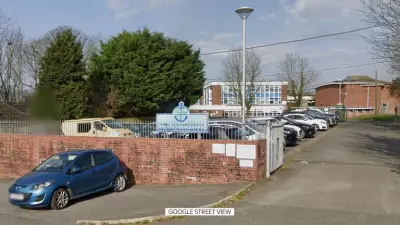
England's education system is poised for its most significant transformation in years, as a major government-commissioned review has unveiled ten groundbreaking recommendations that could reshape learning for millions of students.
The Future is Now: Digital Literacy Takes Centre Stage
In a move that acknowledges our rapidly evolving digital landscape, the review places artificial intelligence and digital literacy at the heart of the modern curriculum. Students will learn to navigate AI tools responsibly while developing critical thinking skills to distinguish fact from fiction in an increasingly complex online world.
Knowledge Versus Skills: Finding the Right Balance
The report tackles the long-standing debate between knowledge-based learning and skills development head-on. It proposes a "balanced approach" that maintains rigorous academic foundations while equipping students with practical life skills essential for adulthood and the workplace.
Wellbeing Front and Centre
Recognising growing concerns about student mental health, the review recommends integrating mental health and wellbeing throughout the school experience, rather than treating it as an add-on. This represents a fundamental shift in how schools support student development.
Key Recommendations at a Glance
- AI and Digital Citizenship: New compulsory content on artificial intelligence, online safety, and digital ethics
- Core Knowledge Foundation: Strengthened emphasis on essential knowledge in English, maths, and science
- Life Skills Curriculum: Practical education covering financial literacy, first aid, and relationship education
- Mental Health Integration: Wellbeing embedded across all subjects and school activities
- Flexible Assessment: Moving beyond traditional exams to include project-based and digital assessment
- Teacher Development: Enhanced training and support for implementing the new curriculum
- Local Adaptation: Schools granted flexibility to tailor certain elements to their community needs
- Sustainability Education: Environmental awareness integrated throughout relevant subjects
- Cultural Literacy: Broader exposure to diverse literature, history, and artistic traditions
- Technical Education Pathway: Strengthened vocational and technical options for post-14 students
What This Means for Schools and Families
The proposed changes signal a significant departure from the current system, with implications for teaching methods, resource allocation, and student assessment. While the government has indicated broad support for the recommendations, implementation would require substantial investment in teacher training and educational resources.
Education Secretary Bridget Phillipson described the review as "a blueprint for preparing young people for the challenges and opportunities of the 21st century", emphasising the need for an education system that keeps pace with technological and social change.
The Road Ahead
With the review now complete, attention turns to the government's formal response and the development of an implementation timeline. While some changes could be introduced relatively quickly, others would require careful planning and consultation with educators across the country.
This potential curriculum overhaul represents the most substantial rethinking of English education in over a decade, promising to create a more responsive, relevant, and robust system for generations to come.





